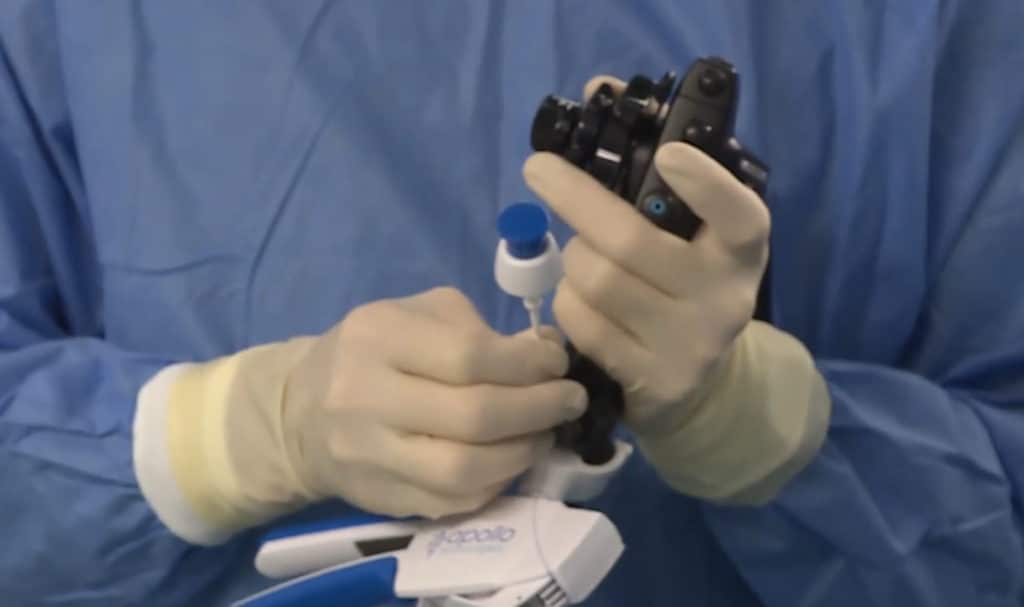Table of Contents
- Endoscopic Sleeve Gastroplasty: A Long-Term Solution for Weight Loss?
- Long-Term Success and Sustainability with ESG
Endoscopic Sleeve Gastroplasty: A Long-Term Solution for Weight Loss?

Obesity has become a global epidemic, impacting millions and leading to severe health complications. While lifestyle changes and medication can help, many individuals struggle to achieve significant and lasting weight loss. Bariatric surgery offers a more definitive solution, but traditional methods like gastric sleeve surgery can be invasive and carry risks. In recent years, endoscopic sleeve gastroplasty (ESG) has emerged as a less invasive alternative, offering promising results for long-term weight management.
Understanding Endoscopic Sleeve Gastroplasty (ESG)
ESG is a minimally invasive procedure performed entirely through the mouth using an endoscope. No incisions are made. During the procedure, the endoscopist sutures the stomach from inside, effectively reducing its size by up to 70-80%. This restriction limits food intake, leading to a feeling of fullness and promoting weight loss.
ESG vs. Gastric Balloon and Gastric Sleeve Surgery: A Comparison
While all three methods aim for weight loss, they differ significantly in approach and long-term outcomes:
- Endoscopic Balloon: This temporary solution involves placing a saline-filled balloon in the stomach, occupying space and inducing a feeling of fullness. However, the balloon needs to be removed after 6-12 months, and weight regain is common without lifestyle changes.
- Gastric Sleeve Surgery: This invasive procedure surgically removes a portion of the stomach, permanently reducing its size. While effective for weight loss, it carries risks associated with surgery and is irreversible.
- Endoscopic Sleeve Gastroplasty (ESG): This minimally invasive procedure offers a middle ground. It provides significant and sustainable weight loss comparable to gastric sleeve surgery but with fewer risks and faster recovery.
Long-Term Success and Sustainability with ESG
Studies have shown that ESG can lead to significant weight loss, with patients losing an average of 15-20% of their total body weight within the first year. More importantly, the results appear sustainable over the long term. Research indicates that patients can maintain 50-60% of their excess weight loss even after five years, with proper diet and exercise.
Advantages of ESG
- Minimally invasive: No incisions, leading to less pain, scarring, and faster recovery.
- Lower risk of complications: Compared to traditional surgery.
- Shorter hospital stay: Often an outpatient procedure or requiring only a short hospital stay.
- Effective weight loss: Comparable to gastric sleeve surgery.
- Improved comorbidities: ESG can help manage obesity-related conditions like type 2 diabetes, hypertension, and sleep apnea.
The Importance of Experience: Dr. Murat Ustun and His Team in Turkey
Choosing an experienced and skilled team is crucial for the success of any medical procedure, especially one as intricate as ESG. Dr. Murat Ustun and his team in Turkey are pioneers in the field of endoscopic bariatric procedures, with over 10 years of experience performing ESG and other advanced techniques. Their expertise translates to superior outcomes and patient satisfaction.
Dr. Ustun's team provides comprehensive care, including pre-operative evaluation, personalized treatment plans, and long-term follow-up to ensure patients achieve their weight loss goals and maintain a healthy lifestyle.

Conclusion: A Promising Future for Weight Management
Endoscopic sleeve gastroplasty offers a safe, effective, and sustainable solution for individuals struggling with obesity. With its minimally invasive nature and long-term results, ESG presents a promising future for weight management, especially when performed by experienced professionals like Dr. Murat Ustun and his team in Turkey.
Disclaimer: This blog post is for informational purposes only and should not be considered medical advice. Always consult with a qualified healthcare professional before making any decisions regarding your health or treatment.

